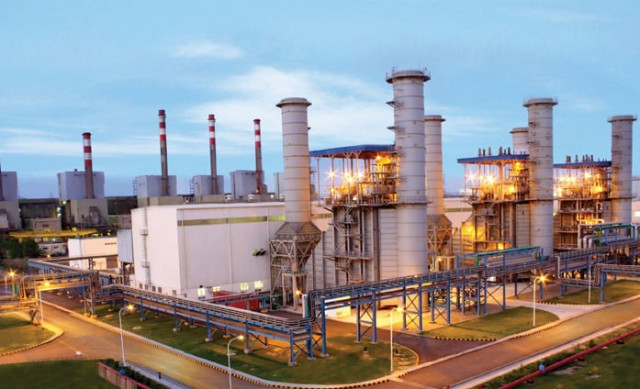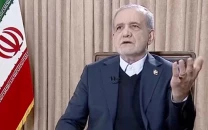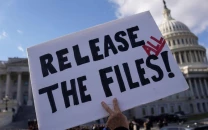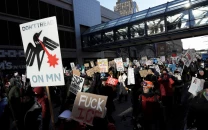Utilities change electricity tariff structure from July
K-E says determination of costs of electricity comes under the jurisdiction of Nepra, govt

The electricity providers have changed the electricity tariff structure in line with the rules and regulations of the federal government as well as the National Electric Power Regulatory Authority (Nepra).
The Karachi-Electric (K-E) said in a press release on Sunday various changes had been made to the rates of electricity and tariff structure that would be effective from July and applicable nationwide, including the service territory of the Karachi-based utility.
The press release said that the determination of costs of electricity to be recovered from consumers across Pakistan in their bills comes under the jurisdiction of Nepra and the government of Pakistan.
“These changes include the non-extension of relief for zero-rated industries as well as the relief on peak-hour electricity consumption for industrial consumers. The retailer tax with revised slabs has been introduced for commercial consumers,” it said.
According to the K-E, the non-time-of-use residential consumers – the consumers with sanctioned load below 5 kilowatts – would also see a revision in their applicable tariff along with a change in the methodology for their calculation.
It explained that the “protected” consumers, as per tariff terms proposed by the government under its Power Subsidy Rationalization Plan and by Nepra as those non-ToU residential consumers with monthly electricity usage of 200 units or less, for the past 6 months.
All other non-ToU residential consumers fall in “Unprotected” category,” the K-E said, adding that previously, the unprotected consumers were provided the benefit of one previous slab in their billing (ie their billing was done in two slabs), which had now been removed.
“Consumers in the unprotected category will now only be charged on one slab in which their units fall. Accordingly, tariff rates have also been adjusted downwards to minimise impact on consumers,” the press release said.
It further said that there would be no further extension in the relaxation provided to the industrial consumers by the government to utilise electricity during peak hours at the same rates as off-peak hours. “Peak rates will now be applicable on industrial consumers as well.”
Similarly, the K-E said, the facility of fixed rate of ¢9 per unit to the zero-rated or export-oriented industries had now been removed and the industries would be charged as per tariff rates of normal industrial consumers.
Retailer tax
As per the Finance Act 2022, retailer tax on unregistered retailers had been revised. From July 1, the consumers on commercial tariff, would be charged a minimum fixed tax of Rs3,000 for bills between Rs0 and Rs30,000.
“Monthly bills between Rs30,001 and Rs50,000 will be taxed Rs5,000, while those with monthly bills above Rs50,0001 will be taxed Rs10,000,” it said, adding: “Inactive income taxpayers will be charged twice the taxable amounts.”
The power utility said that unprecedented hikes in the price of furnace oil and re-gasified liquefied natural gas (RLNG) were translating into higher costs of electricity production for utilities as well as the consumers.
Under the tariff mechanism determined by Nepra, incremental costs of fuel are recovered from consumers in their bills via fuel charges adjustments (FCA) after the regulator’s scrutiny and approval, the K-E added.
“We understand that our consumers may have a number of questions about these revisions. To assist them during this time, we have updated our website with frequently asked questions,” a KE spokesperson stated, while speaking about the changes.
“To reiterate, these changes are introduced under the governing laws of the government of Pakistan and the rules of the regulatory authority Nepra and are applicable across the country,” the spokesperson added.



1721969212-0/BeFunky-collage]-(35)1721969212-0-208x130.webp)















COMMENTS
Comments are moderated and generally will be posted if they are on-topic and not abusive.
For more information, please see our Comments FAQ